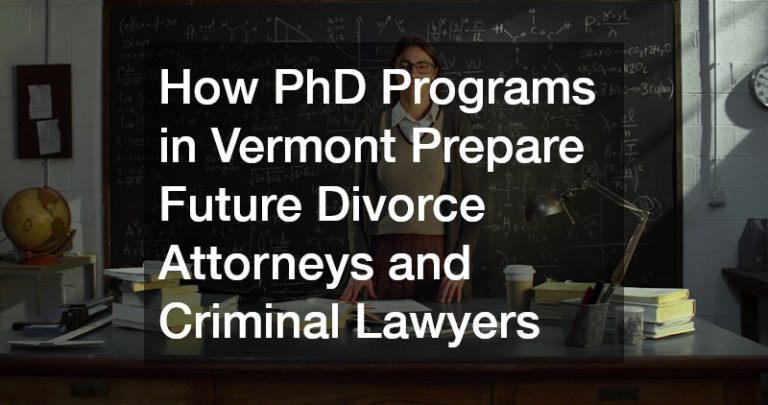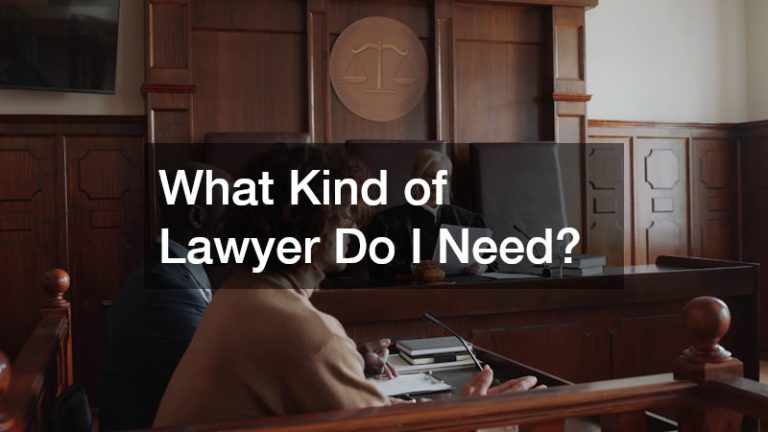
When stepping into the realm of law, you’ll find that various branches govern different aspects of life. The questions we pose today are tailored to address typical situations people encounter, with the hope that you will feel more equipped to tackle your legal challenges. From understanding your rights during an arrest to deciphering how to create a valid will, this compilation of common legal questions has been designed for you.
1. What Is the Difference Between Civil and Criminal Law?
Civil law encompasses legal disputes between individuals or entities where compensation may be awarded to the victim. In contrast, criminal law involves actions considered harmful to society as a whole, leading to prosecution by the state or government. Understanding this distinction is critical, especially when determining whether you need a criminal defense attorney or an injury attorney for a specific situation.
A criminal case may involve serious charges such as theft or assault, wherein the defendant faces penalties such as imprisonment or fines. By contrast, civil cases, such as those handled by an accident attorney, typically deal with disputes regarding property, contracts, or personal injuries, where the accused party may owe damages to the complainant. It’s crucial to identify the nature of your legal issue to seek the appropriate legal expertise, whether it be a family attorney, a probate attorney, or another specialist.
The overlap between civil and criminal law can sometimes be significant, as certain actions may lead to both a criminal prosecution and a civil lawsuit. For example, a DUI charge may prompt a criminal court case alongside a civil suit for damages sustained by another party. Therefore, having a multifaceted understanding of both legal frameworks can empower you when facing such issues.

2. How Do I File for Divorce?
Filing for divorce is a legal process that begins by completing and submitting a petition for divorce to your local court. This petition outlines your desire to dissolve the marriage and includes essential details like the grounds for divorce, financial information, and child custody arrangements if applicable. Consulting a family attorney can be beneficial in navigating these complexities, as they can help ensure that your rights and interests are fully represented.
Once the petition is filed, your spouse must be formally served with the divorce papers, which is a necessary step in the legal process. This can be achieved through a process server or with bail bonds through an appropriate bail bond agency if required. After serving your spouse, there is a waiting period that varies by state, during which negotiations regarding division of assets, debts, and custody arrangements often occur.
Eventually, if both parties can agree on the terms, the divorce can be finalized amicably, leading to a dissolution of the marriage without a lengthy court battle. In cases of disagreement, a family attorney may represent you in court to advocate for your position. Ultimately, understanding the steps involved in filing for divorce can make a significant difference in how the process unfolds.
3. What Rights Do I Have During an Arrest?
During an arrest, it is vital to understand your rights to protect yourself legally. You have the right to remain silent and not answer any questions that could incriminate you; invoking this right can prevent self-incrimination in a criminal case. Seeking advice from a criminal defense attorney during this process can also help ensure that your rights are not violated, leading to a stronger defense.
You also have the right to know the reason for your arrest. If law enforcement fails to disclose this information, it may provide grounds for a legal challenge down the line. Lastly, you are entitled to seek legal representation, which is crucial for navigating the complexities of your case, especially in serious matters like then you need a DUI lawyer or are facing more severe criminal allegations.
Understanding your rights can significantly impact the outcome of your legal situation. Regardless of the nature of the accusations, having an informed approach and consulting with a reputable criminal defense attorney can facilitate a more favorable resolution. Awareness of your rights during an arrest also fosters accountability among law enforcement officials who must uphold the law correctly.
4. How Do I Create a Will?
Creating a will is a critical aspect of estate planning that allows you to dictate how your assets will be distributed upon your death. The process typically begins with identifying your assets, beneficiaries, and any specific instructions you wish to impart. Engaging with estate attorneys can simplify this undertaking, ensuring that your will meets legal requirements specific to your state.
Once your will is drafted, it must be signed and witnessed according to your jurisdiction’s laws for it to be legally binding. This step is essential to prevent potential disputes among heirs and to make your wishes clear. Additionally, revisiting and updating your will periodically is crucial, particularly after significant life changes such as marriage, divorce, or the birth of children.
An effective will can save your loved ones from significant stress during an already challenging time. Furthermore, having a probate attorney assist can help you manage any complexities that arise after your passing. In summary, understanding the proper way to create a will can provide peace of mind knowing that your wishes will be honored.

5. What Are My Tenant Rights?
Tenant rights vary significantly depending on local laws, but fundamental protections generally ensure that individuals can live in safe, habitable conditions. Most renters are entitled to basic amenities like heat, water, and electrical services, and landlords must address maintenance issues promptly. Knowing your rights as a tenant can provide critical leverage when disputes arise, making consultation with a knowledgeable attorney advisable.
If a landlord fails to meet these obligations, tenants often have the right to withhold rent or seek alternatives like terminating the lease agreement. Additionally, protections against wrongful evictions are in place in most jurisdictions, preventing landlords from removing tenants without appropriate legal procedures. In such cases, an injury attorney or real estate attorney can assist in understanding the necessary steps to take.
It’s also essential for tenants to be aware of their responsibilities, including timely rent payments and proper upkeep of the rental unit. By fostering a collaborative relationship with your landlord based on mutual respect for rights and responsibilities, a more harmonious tenant-landlord dynamic can be achieved. Understanding your tenant rights empowers you to take action when faced with unjust treatment.
6. How Do I Start a Business Legally?
Starting a business involves multiple legal steps designed to establish your venture on a firm legal foundation. Initially, you must choose a business structure—options involve sole proprietorships, partnerships, limited liability companies (LLCs), or corporations. Each structure has its legal implications, such as liability protections and tax responsibilities, so consulting with an attorney specialized in business law can guide you in making the right selections.
Once you have settled on a business structure, the next step is to register your business with the relevant government authorities. This process can include obtaining necessary licenses, permits, and an employer identification number (EIN) from the IRS. Compliance with local, state, and federal rules is crucial to operate legally; failing to do so can lead to fines and legal issues down the line.
Moreover, crafting a detailed business plan and understanding your financing options will place you in a better position as you move forward. Working with an attorney can also help you draft effective contracts, manage business liability, and navigate potential disputes. Ultimately, understanding the legal requirements of starting a business can help launch your entrepreneurial journey successfully.

7. What Are the Steps to Take After a Car Accident?
After a car accident, it’s crucial to follow specific steps to ensure your legal rights are protected and to facilitate any potential claims. Initially, ensure everyone’s safety and call emergency services if injuries are present. Documenting details from the scene, such as photographs of damages, injuries, license plates, and witness contacts, can be immensely helpful later on; consulting an accident attorney for guidance during this stage is advisable.
Once the immediate crisis is managed, notifying your insurance company about the incident is essential. Providing the necessary information enables your insurer to determine coverage and liabilities accurately. Additionally, it’s advisable to refrain from admitting fault at the scene as this could adversely impact your claim.
If injuries were sustained, seeking medical attention promptly is essential, both for health reasons and to establish medical records that could support your case. A medical malpractice lawyer or an injury attorney can then assist you in assessing your injuries, negotiating with insurance companies, and, if necessary, pursuing legal action. Understanding these steps can empower you to make informed decisions in the aftermath of an accident.
8. How Do I Apply for Bankruptcy?
Applying for bankruptcy is a significant legal step that can provide relief from overwhelming debt, but it requires careful consideration. Initially, understanding the different types of bankruptcy—such as Chapter 7 and Chapter 13—is critical in determining which option suits your needs. Engaging with a qualified bankruptcy attorney can guide you through the application process and help you understand the implications of your choice.
The application process includes gathering financial documents, such as your income, debts, and assets, to provide complete transparency to the court. Completing a credit counseling course is another requirement mandated before filing for bankruptcy, and this process can help you explore alternatives to bankruptcy. Once your application is filed, an automatic stay prevents creditors from pursuing collections, offering immediate relief.
Understanding the ramifications of bankruptcy—such as its impact on your credit score—is essential for planning your financial future post-bankruptcy. Furthermore, working with a seasoned attorney can ensure compliance with federal and state laws throughout the process. In the end, knowing how to navigate bankruptcy can lead to a fresh financial start.
9. What Are Intellectual Property Rights?
Intellectual property (IP) rights are legal protections granted to creators for their intellectual creations, including inventions, music, literature, and brands. Understanding IP rights is essential for anyone looking to protect their innovations and market their creative works correctly. This area of law encompasses various categories, such as patents, copyrights, and trademarks, each requiring adherence to specific regulations.
Registering for intellectual property rights can help safeguard your creations from unauthorized use by others. For instance, a patent prevents others from manufacturing your invention, while a copyright protects your original artistic works. Collaborating with an intellectual property attorney can aid in navigating these complexities, ensuring that your innovations are properly safeguarded.
Companies and individuals alike must be aware of these rights, as improper usage can lead to costly legal disputes. Protecting your intellectual property not only establishes ownership but also enhances your competitive advantage in the marketplace. Understanding intellectual property rights is a crucial component for any business or creator aiming to thrive in today’s economy.

10. How Do I Handle Employment Disputes?
Employment disputes can arise over various issues, including wrongful termination, discrimination, wage claims, and workplace harassment. Addressing these disputes requires knowledge of both federal and state employment laws. Seeking assistance from a knowledgeable employment attorney can significantly aid in navigating these potentially complicated situations.
The first step in resolving an employment dispute is often to address the issue directly with your employer or HR department, allowing for an informal resolution. If that does not yield satisfactory results, documenting all relevant interactions and incidents is crucial for building your case. Depending on the nature and severity of the dispute, you may need to file a complaint with the appropriate agency or pursue litigation.
Understanding the legal framework surrounding employment disputes can empower you to act decisively and protect your rights. An experienced attorney can provide guidance on the most effective approach to take and improve your chances of a favorable outcome. Ultimately, being informed about your options can make a significant difference in how your employment dispute is resolved.
Conclusion
Whether you’re dealing with a family law issue, a personal injury claim, or looking to safeguard your estate, thorough preparation and understanding can significantly ease the process. Armed with the insights provided in this article, you can face your legal concerns with greater confidence and clarity. Take proactive steps, and remember that there are professionals ready to assist in navigating your legal journey.






